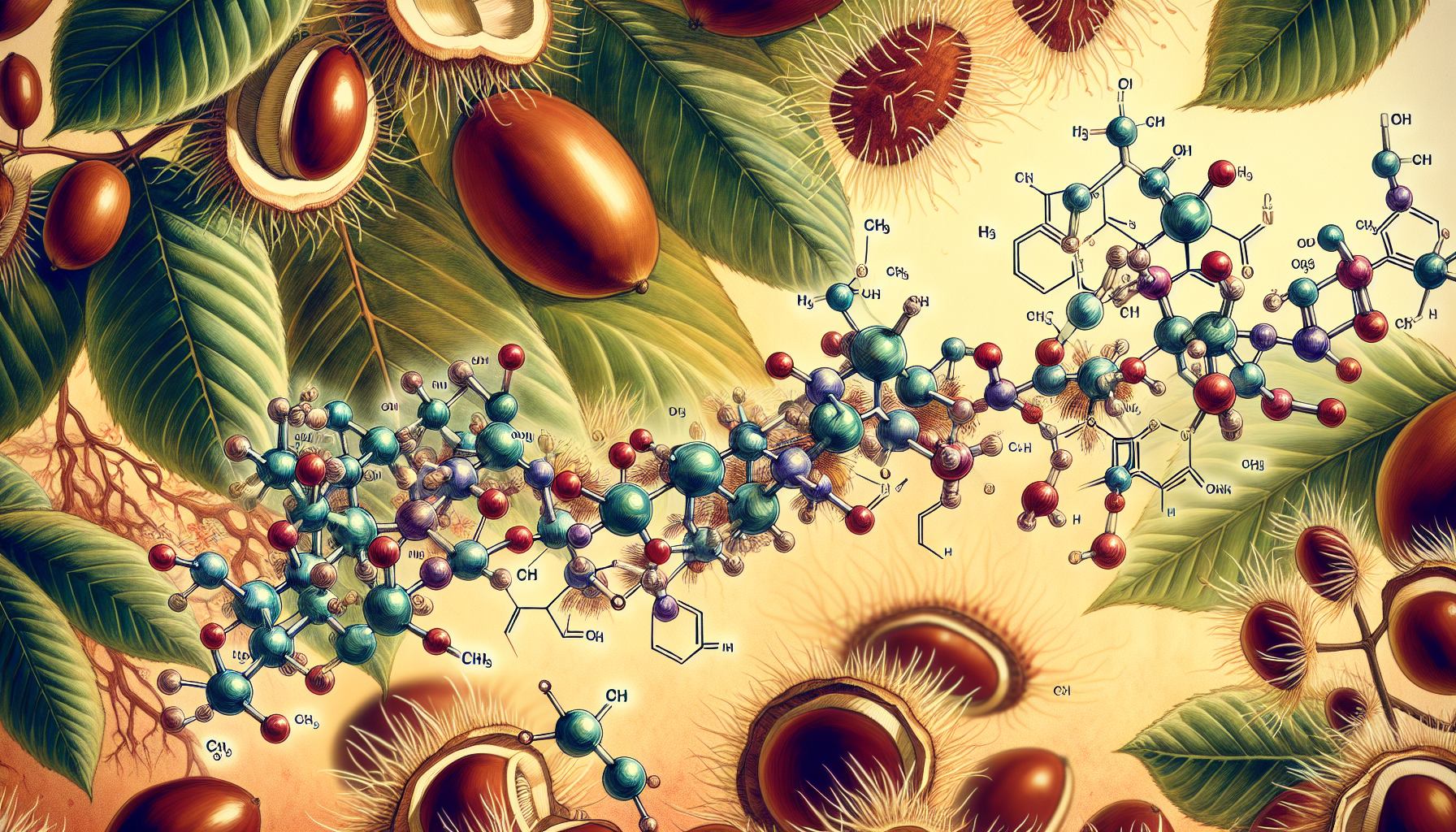Are Conkers Poisonous to Dogs? What You Need to Know
- By Piers
- 15 September 2024
- Advice, Health & Safety
Are conkers poisonous to dogs? Yes, conkers are not only a potential choking hazard but also contain a toxic substance called aesculin, which can cause serious health issues. This article will explain why conkers are dangerous, the symptoms of poisoning, and what actions to take if your dog eats one.
Key Takeaways
- Conkers contain aesculin, a toxic compound harmful to dogs, leading to serious health issues if ingested.
- Signs of conker poisoning include gastrointestinal upset and severe symptoms like toxic shock and respiratory paralysis; early intervention is crucial.
- Preventive measures such as using a lead during walks and training commands can help keep dogs safe from conker ingestion.
Understanding Conkers and Their Appeal to Dogs

Conkers, the round, dark brown nuts of the horse chestnut tree called horse chestnuts have an alluring appearance that can easily catch a dog’s eye. Their shiny surface and interesting texture make them irresistible to many dogs, who love to explore the world with their mouths. But what seems like a harmless plaything can quickly turn dangerous.
Many dogs are drawn to conkers out of sheer curiosity. Whether it’s the smell, taste, or just the novelty of a new object, dogs often find these nuts intriguing. Unfortunately, this can lead to serious health issues if a dog eats a conker. The tough exterior of conkers can cause blockages in a dog’s stomach, and the toxic substance within can lead to poisoning.
Given these risks, dog owners need to stay vigilant, especially during autumn walks when fallen conkers are abundant. Monitoring your dog and being aware of the potential dangers of your dog eating conkers can significantly enhance your dog’s safety.
The Toxic Substance in Conkers: Aesculin

The danger of conkers poisonous to dogs lies not just in their potential to cause physical blockages but also in their chemical composition. Conkers contain a toxin known as aesculin, which is harmful to dogs when ingested. This toxic compound is present in all parts of the horse chestnut tree, from the seeds to the leaves and bark.
When a dog consumes conkers, aesculin can wreak havoc on their system, leading to severe health issues. Ingesting large quantities of this toxin can result in the rupture of red blood cells, causing symptoms that range from abdominal discomfort to more severe outcomes such as toxic shock.
Knowing how aesculin affects dogs is essential to recognise and deal with conker poisoning if your dog has consumed conkers.
Symptoms of Conker Poisoning in Dogs

Identifying conker poisoning symptoms promptly is vital for timely intervention. Dogs that have ingested conkers may exhibit signs of gastrointestinal upset, such as vomiting and diarrhoea. These early symptoms can appear within one to six hours of ingestion but may also take up to two days to manifest fully.
In more serious cases, the symptoms can escalate to toxic shock, depression, rigid muscles, spasms, fever, and respiratory paralysis. Close monitoring is essential if you suspect your dog has ingested a conker, as early detection improves their chances of recovery. If your dog has eaten conkers, contact your vet immediately for guidance and avoid trying to induce vomiting at home.
Identifying Conker Poisoning Early
Catching conker poisoning early can greatly impact your dog’s recovery. Watch for initial symptoms like discomfort, abdominal pain, and wobbliness. These signs usually appear within one to six hours after ingestion.
If these early symptoms are present, call your vet immediately and seek veterinary advice. Quick action can provide your pooch with the needed treatment before the poisoning worsens.
Severe Cases of Conker Poisoning
Severe conker poisoning can lead to life-threatening symptoms. Dogs may collapse, and the situation can quickly become critical. Severe ingestion of conkers can lead to symptoms such as liver damage, respiratory paralysis, and even death.
Urgent veterinary care is crucial if severe symptoms appear after a dog eats conkers. Treatments might include intravenous fluids and other supportive measures to stabilize the dog’s condition and mitigate the effects of the toxin.
Immediate Actions if Your Dog Eats a Conker

If your dog eats conkers, swift action is imperative. Contact your vet immediately. Time is of the essence, and providing the vet with information on how many conkers were consumed and when can be vital.
Veterinary consultation is essential to determine the best course of action. Treatment options may involve inducing vomiting, administering medication for symptoms like vomiting and diarrhoea, and providing supportive care such as rehydration.
Follow-up with your vet after initial treatment is important to ensure your dog’s recovery.
Treatment Options for Conker Poisoning
 Treatment often starts with inducing vomiting to expel the ingested conkers. However, do not attempt this without veterinary guidance, as it can lead to complications.
Treatment often starts with inducing vomiting to expel the ingested conkers. However, do not attempt this without veterinary guidance, as it can lead to complications.
In severe cases, the vet may perform gastric lavage to remove toxins from the stomach. Intravenous fluids are commonly administered to rehydrate the dog and support recovery. The vet will monitor the dog’s condition closely to address any further complications and ensure recovery.
Preventative Measures to Keep Your Dog Safe
Prevention is always better than cure. Using a lead during walks in areas with conker trees is a primary defence. Regularly collecting fallen conkers in your garden can prevent your dog from accessing them.
Offering distractions like chew toys or balls can also be effective. These keep your dog’s mouth occupied and reduce the chance of picking up harmful objects like conkers.
Training Commands and Supervision
Teaching your dog commands like ‘leave it’ can be lifesaving. Consistent training helps dogs learn what is not suitable to eat. Specifically, using commands can prevent dogs from eating conkers, which is particularly important during autumn walks near horse chestnut trees.
Supervising your dog during outdoor activities is also important. Watching them closely can prevent ingestion of dangerous items like conkers.
Using Chew Toys as Distractions
Chew toys effectively distract dogs, keeping them engaged and away from hazards like conkers. Offering safe alternatives for dog chews significantly reduces the risk of ingesting harmful objects.
All Parts of Horse Chestnut Trees Are Poisonous
While conkers are a well-known hazard, it’s important to remember that all parts of the horse chestnut tree are poisonous to dogs. This includes the leaves, bark, and flowers, which also contain toxic compounds that can harm your pup.
Keeping your dog away from any part of the horse chestnut tree is crucial. Awareness of these dangers allows you to take proactive steps for your dog’s safety and well-being.
Summary
Understanding the risks posed by conkers and other parts of the horse chestnut tree is vital for every dog owner. By recognizing the symptoms and knowing the immediate actions to take, you can protect your dog from this danger.
Prevention, through training, supervision, and providing safe alternatives like chew toys, is the best strategy. Stay vigilant, act quickly if your dog eats a conker, and always consult your vet to ensure your pet’s health and safety.
Frequently Asked Questions
Are conkers poisonous to dogs?
Conkers are indeed poisonous to dogs because they contain the toxic compound aesculin. It’s important to keep them away from your pups to prevent potential poisoning.
What substance in conkers can be toxic to dogs?
Conkers contain aesculin, a substance that can be toxic to dogs if ingested. It’s important to keep them away from conkers to ensure their safety.
Why might dogs be attracted to conkers?
Dogs are likely drawn to conkers because of their shiny look, intriguing texture, and the natural curiosity that drives them to explore new objects. It’s important to supervise their interaction with such items to ensure safety.
What should you do if your dog eats conkers?
If your dog eats conkers, it is crucial to contact your veterinarian or an emergency animal hospital right away. This ensures your pet receives the necessary care and assessment.
What are some symptoms of conker poisoning in dogs?
Conker poisoning in dogs can present serious symptoms such as vomiting, diarrhoea, drooling, abdominal pain, restlessness, increased heart rate, difficulty breathing, and even seizures. If you notice these signs, seek veterinary attention immediately.
